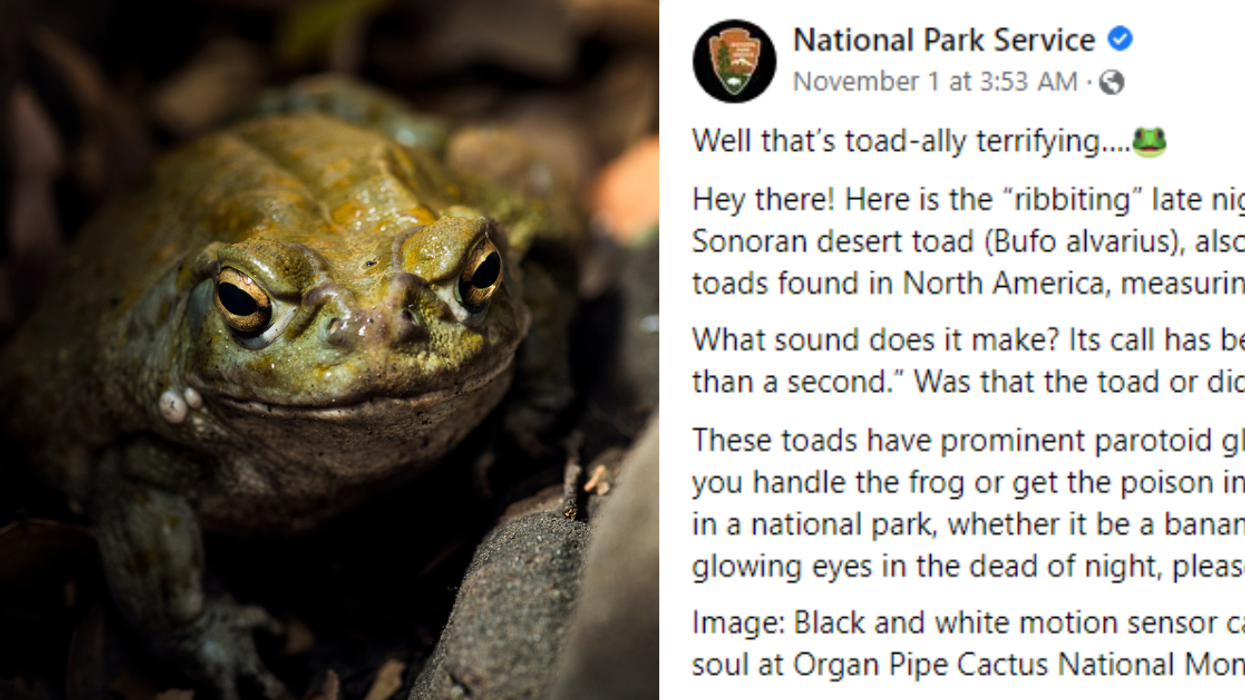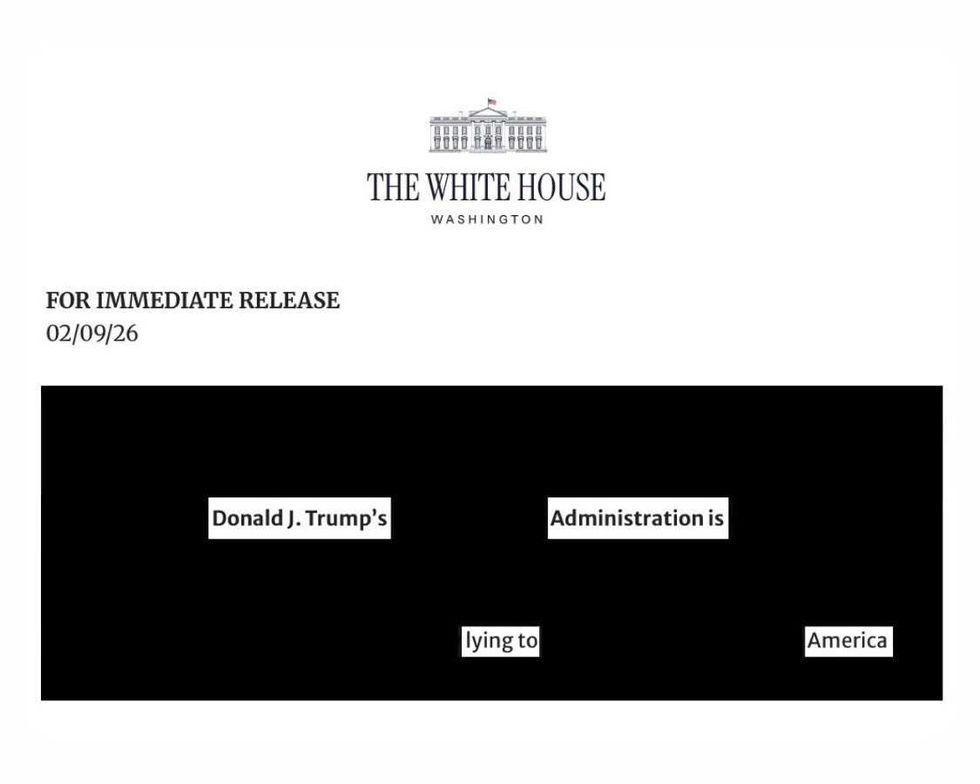We've all known at least one person who will do anything to entertain themselves.
Fortunately, in most cases, people do not have to be reminded to not lick random objects.
National Park Service did not have the same luck, however, as they felt the need to put out a public service announcement last week about licking psychedelic frogs, specifically the Sonoran Desert Toad, also known as the Colorado River Toad.
In their usual humorous manner, the spokesperson for National Park Service wrote on Facebook:
"Here is the 'ribbiting' late night content no one asked for. Yet here we are. The Sonoran desert toad (Bufo alvarius), also known as the Colorado river toad, is one of the largest toads found in North America, measuring nearly 7 inches (18 cm)."
"What sound does it make? Its call has been described as a 'weak, low-pitched toot, lasting less than a second'. Was that the toad or did something startle you?"
"These toads have prominent parotoid glands that secrete a potent toxin. It can make you sick if you handle the frog or get the poison in your mouth."
"As we say with most things you come across in a national park, whether it be a banana slug, unfamiliar mushroom, or a large toad with glowing eyes in the dead of night, please refrain from licking."
The featured photo is in black and white, and was captioned:
"Image: Black and white motion sensor camera capture of Sonoran Desert Toad staring into your soul at Organ Pipe Cactus National Monument, Arizona."
You can read the full post here:
The post quickly garnered attention with more than 21-thousand likes, 2,400 shares, and over 1,200 comments.
While the subject of the post was serious, readers couldn't help but appreciate the humor.







Considering their size, these toads must be incredible to witness in person, especially in the dark with their glowing eyes. However, like many other features found in nature, it is better to see them than to touch them, or in this case, to lick them.








 @chappellroan/Instagram
@chappellroan/Instagram r/Fauxmoi/Reddit
r/Fauxmoi/Reddit r/Fauxmoi/Reddit
r/Fauxmoi/Reddit r/Fauxmoi/Reddit
r/Fauxmoi/Reddit r/Fauxmoi/Reddit
r/Fauxmoi/Reddit r/Fauxmoi/Reddit
r/Fauxmoi/Reddit r/Fauxmoi/Reddit
r/Fauxmoi/Reddit r/Fauxmoi/Reddit
r/Fauxmoi/Reddit r/Fauxmoi/Reddit
r/Fauxmoi/Reddit r/Fauxmoi/Reddit
r/Fauxmoi/Reddit r/Fauxmoi/Reddit
r/Fauxmoi/Reddit r/Fauxmoi/Reddit
r/Fauxmoi/Reddit r/Fauxmoi/Reddit
r/Fauxmoi/Reddit r/Fauxmoi/Reddit
r/Fauxmoi/Reddit r/Fauxmoi/Reddit
r/Fauxmoi/Reddit @ANASKHA96399553/X
@ANASKHA96399553/X r/Fauxmoi/Reddit
r/Fauxmoi/Reddit r/Fauxmoi/Reddit
r/Fauxmoi/Reddit r/Fauxmoi/Reddit
r/Fauxmoi/Reddit





 @odinikaeze/X
@odinikaeze/X @OneSixtyToOne/X
@OneSixtyToOne/X @Dazz222/X
@Dazz222/X

 The White House
The White House @JBPritzker/X
@JBPritzker/X